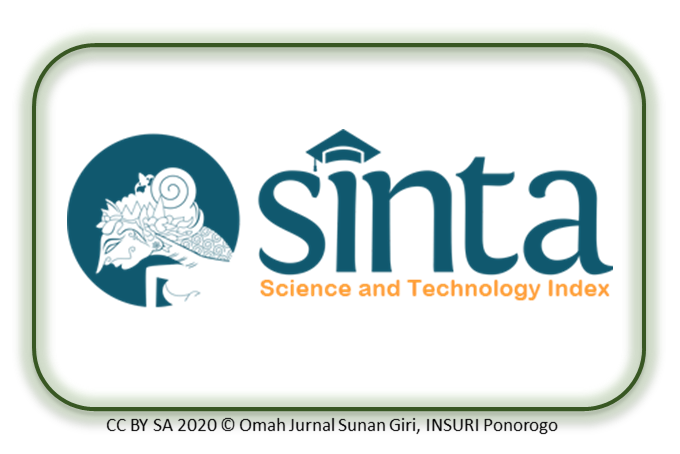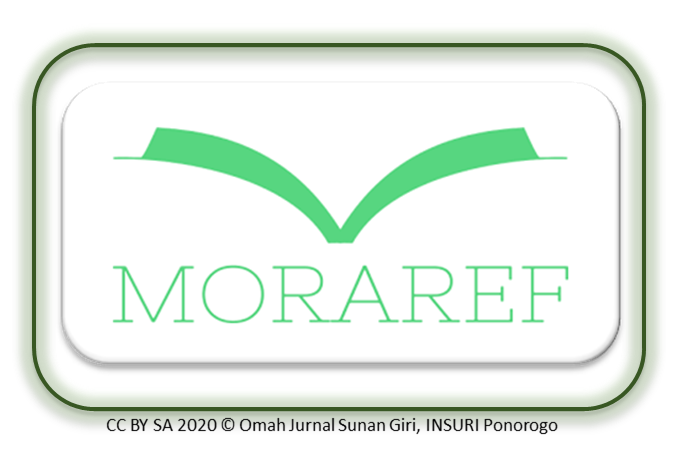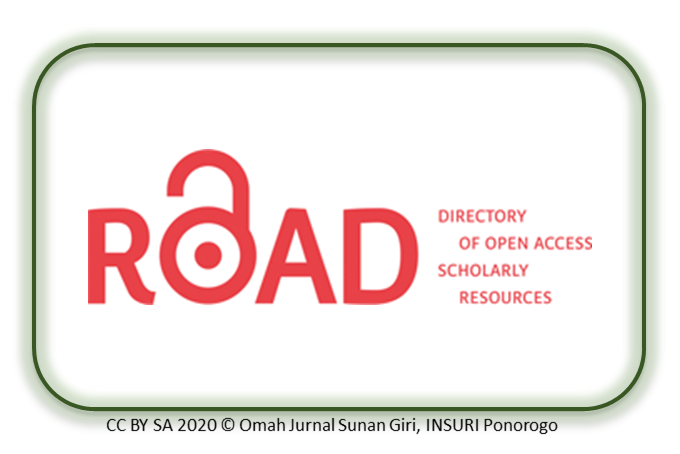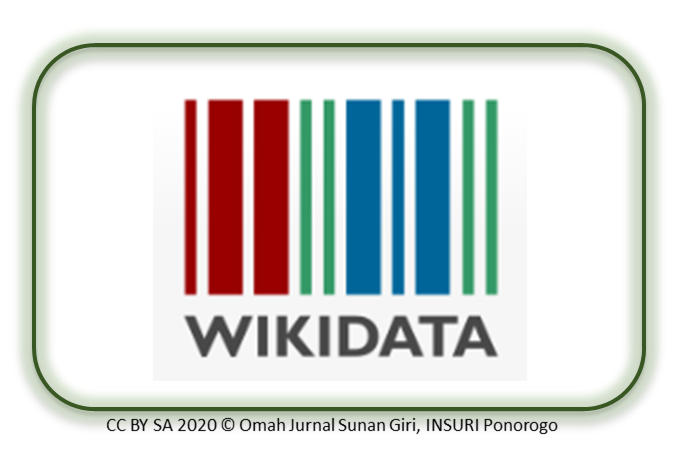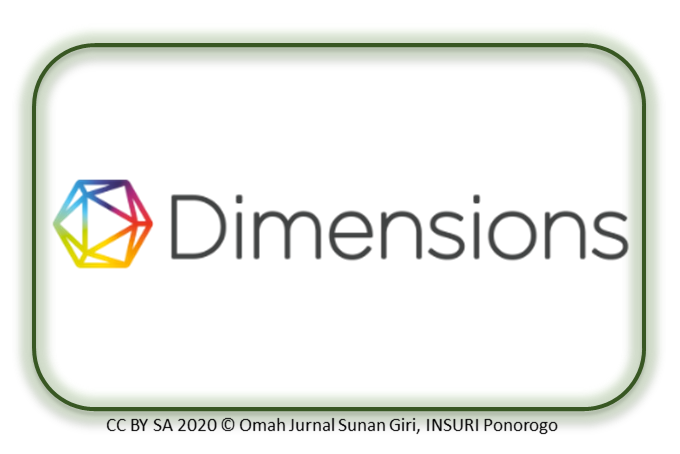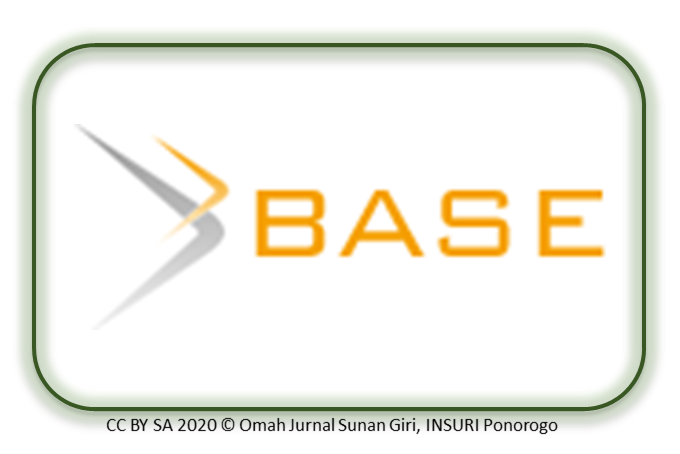Implementasi Kurikulum Berbasis Cinta (KBC) dalam Pembelajaran Bahasa Arab di Madrasah
Abstract
The Love-Based Curriculum is a transformative educational paradigm that centers on instilling values of compassion, empathy, and spirituality throughout the learning process. Rooted in holistic education, this approach seeks not only to develop cognitive abilities but also to foster emotional intelligence and moral integrity. This article explores the practical implementation of a Love-Based Curriculum in the context of Arabic language instruction within madrasas—Islamic educational institutions that inherently balance religious and academic learning.Employing a descriptive qualitative methodology, this study synthesizes insights from recent scholarly literature, policy documents, and educational best practices published over the last five years. The analysis focuses on the strategies teachers use to internalize love-centered principles within their Arabic language teaching. These strategies include the integration of spiritually rich texts, the use of narrative and dialogical pedagogies, and the cultivation of a learning atmosphere characterized by mutual respect and emotional safety. In many cases, Arabic texts are selected or adapted to contain themes of compassion, justice, and humility—reinforcing both linguistic understanding and ethical awareness.The findings reveal that implementing Love-Based principles in Arabic language learning results in several pedagogical benefits. First, students exhibit heightened intrinsic motivation and sustained interest in the subject matter. Second, classroom interactions become more inclusive and empathetic, shifting the teacher-student relationship toward a more nurturing and dialogic model. Lastly, students demonstrate significant development in character-related domains such as cooperation, patience, and ethical decision-making.This study underscores the relevance of moral-emotional frameworks like the Love-Based Curriculum in shaping meaningful and humanistic learning experiences. By integrating values into linguistic instruction, educators can foster not only language proficiency but also nurture compassionate and reflective learners equipped to navigate both academic and social dimensions of life.References
Albantani, A. M. (2020). Implementasi Kurikulum 2013 pada Pembelajaran Bahasa Arab di Madrasah Ibtidaiyah. Jakarta: UIN Syarif Hidayatullah Repository. PDF
Fatimah, S., & Supriyadi, A. (2023). “Penguatan Nilai Cinta dalam Pendidikan Islam: Studi pada Madrasah Aliyah di Jawa Timur.” Jurnal Pendidikan Karakter, 13(1), 45–60.
Habibi, M., & Supriyadi, A. (2022). “Pedagogi Cinta dalam Pembelajaran Bahasa Arab: Studi Kualitatif di Madrasah.” Arabiyat: Jurnal Pendidikan Bahasa Arab dan Kebahasaaraban, 9(2), 112–130.
Moleong, L. J. (2021). Metodologi Penelitian Kualitatif (Edisi Revisi). Bandung: Remaja Rosdakarya.
Noddings, N. (2012). The Ethics of Care in Education. Berkeley: University of California Press.
Sanjaya, W. (2020). Strategi Pembelajaran Berorientasi Standar Proses Pendidikan. Jakarta: Kencana.
Zubaidillah, M. H., & Sulthan, M. A. (2021). “Integrasi Nilai Spiritual dalam Pembelajaran Bahasa Arab di Madrasah.” Jurnal Studi Islam dan Bahasa Arab, 5(1), 77–89.
Peraturan Menteri Agama Republik Indonesia No. 183 Tahun 2019 tentang Kurikulum Pendidikan Agama Islam dan Bahasa Arab di Madrasah.
Khairun Nisa, A., & Al Ghifari, M. (2023). Implementasi Kurikulum Merdeka pada pembelajaran Bahasa Arab di Madrasah Aliyah Negeri 1 Kendari. Al Mi’yar: Jurnal Ilmiah Pembelajaran Bahasa Arab dan KebahasaAraban, 6(2), 627–646. https://doi.org/10.35931/am.v6i2.2685
Laela, I. (2023). Implementasi Kurikulum Merdeka dalam pembelajaran Bahasa Arab di SMK Al Hidayah (Skripsi). UIN Saizu Purwokerto. https://repository.uinsaizu.ac.id/23000/1/Inhatul%20Laela%20Skripsi.pdf
Kementerian Agama Republik Indonesia. (2025). Panduan implementasi Kurikulum Cinta di madrasah. Direktorat Jenderal Pendidikan Islam. https://www.ainamulyana.com/2025/03/panduan-implementasi-kurikulum-cinta-di.html
Muhammad, A. (2024, Januari 15). Implementasi konsep Kurikulum Cinta pada madrasah di Indonesia. Kompasiana. https://www.kompasiana.com/muhammad48737/67b5f55fed6415570e2dce04/implementasi-konep-kurikulum-cinta-pada-madrasah-di-indonesia
Nyayu Khodijah. (2024, Februari 5). Uji publik Kurikulum Berbasis Cinta di madrasah: Evaluasi dan tanggapan. Kemenag.go.id. https://www.melintas.id/pendidikan/345770044/uji-publik-kurikulum-berbasis-cinta-di-madrasah-evaluasi-tanggapan-positif-dan-saran-penyempurnaan-untuk-pendidikan-yang-lebih-bermakna
Ilyas, A. M. (2023). Implementasi Kurikulum 2013 dalam pembelajaran Bahasa Arab pada Madrasah Tsanawiyah Negeri 2 Kota Makassar (Tesis Magister). UIN Alauddin Makassar. https://repositori.uin-alauddin.ac.id/26385/
Kementerian Agama Republik Indonesia. (2019). Keputusan Menteri Agama (KMA) No. 183 Tahun 2019 tentang Kurikulum Pendidikan Agama Islam dan Bahasa Arab di Madrasah. https://www.kemenag.go.id
Mulyana, A. (2025, Maret 4). Panduan implementasi Kurikulum Cinta di madrasah. Jelajah Informasi. https://www.ainamulyana.com/2025/03/panduan-implementasi-kurikulum-cinta-di.html
Tribun Bangka. (2025, Maret 24). Implementasi Kurikulum Cinta di madrasah: Menanamkan nilai rahmatan lil ‘alamin sejak dini. Bangka Pos. https://bangka.tribunnews.com/2025/03/24/implementasi-kurikulum-cinta-di-madrasah
Yin, R. K. (2018). Case study research and applications: Design and methods (6th ed.). SAGE Publications.
Azizah, N., & Rahmawati, D. (2022). Penguatan nilai karakter dalam pembelajaran Bahasa Arab berbasis nilai-nilai Islam. Jurnal Al-Ta’rib: Jurnal Ilmiah Program Studi Pendidikan Bahasa Arab IAIN Palangka Raya, 10(1), 55–70. https://doi.org/10.23971/altarib.v10i1.3456
Fauzi, A. (2021). Pendidikan karakter dalam pembelajaran Bahasa Arab: Studi implementasi nilai kasih sayang di madrasah. Jurnal Pendidikan Islam, 7(2), 123–138. https://doi.org/10.21093/jpi.v7i2.2890
Hidayat, R., & Nuraini, S. (2020). Strategi pembelajaran Bahasa Arab berbasis nilai spiritual di madrasah aliyah. Arabiyatuna: Jurnal Bahasa Arab, 4(2), 89–104. https://doi.org/10.29240/arabiyatuna.v4i2.1123
Kementerian Agama Republik Indonesia. (2023). Laporan evaluasi implementasi Kurikulum Cinta di madrasah pilot project tahun 2022/2023. Direktorat Jenderal Pendidikan Islam.
Sari, M. P., & Lestari, R. (2024). Peran guru dalam membentuk karakter siswa melalui pendekatan kasih sayang dalam pembelajaran. Jurnal Pendidikan dan Kebudayaan, 29(1), 45–59. https://doi.org/10.24832/jpnk.v29i1.5678
Copyright (c) 2025 M Isroul Laili

This work is licensed under a Creative Commons Attribution-NonCommercial-ShareAlike 4.0 International License.
Contents on this site are licensed under Creative Commons Attribution-NonCommercial-ShareAlike 4.0 International (CC BY-NC-SA 4.0)

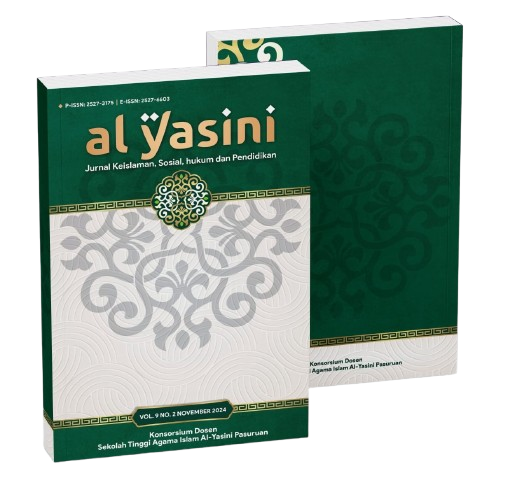

1.png)

